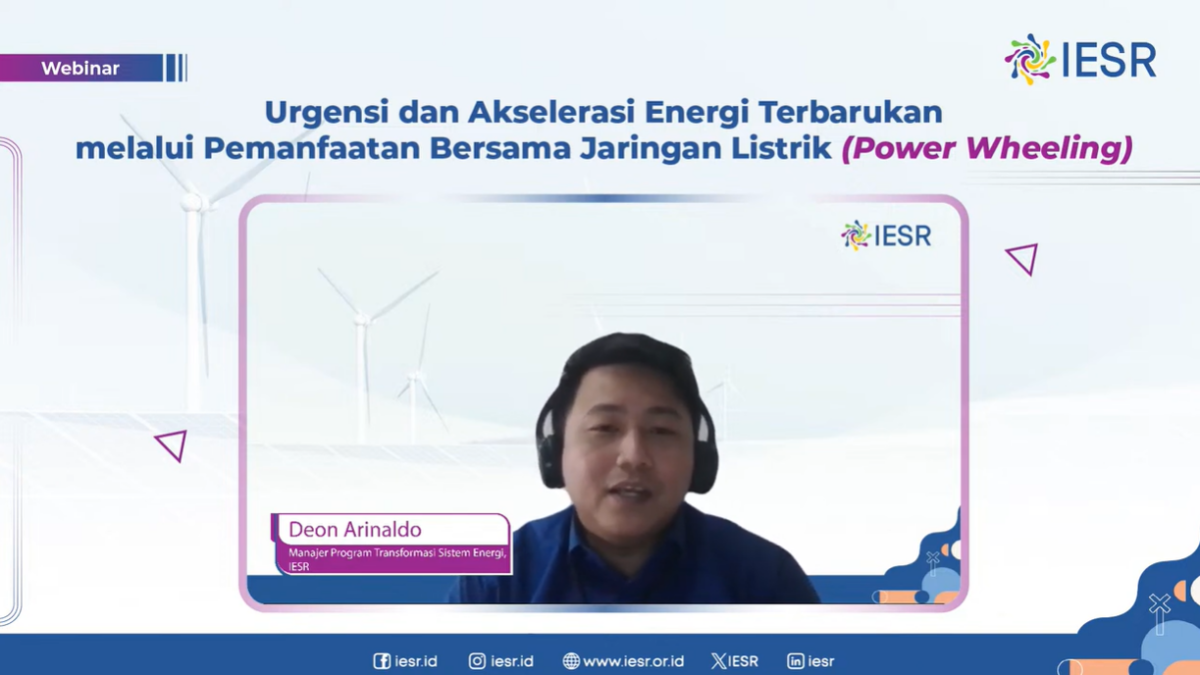
Encouraging Renewable Energy Development Through Joint Transmission Utilization
Jakarta, 25 September 2024 – The establishment of a transmission network joint utilization scheme (wheeling) to accelerate the utilization of renewable en... Read more.
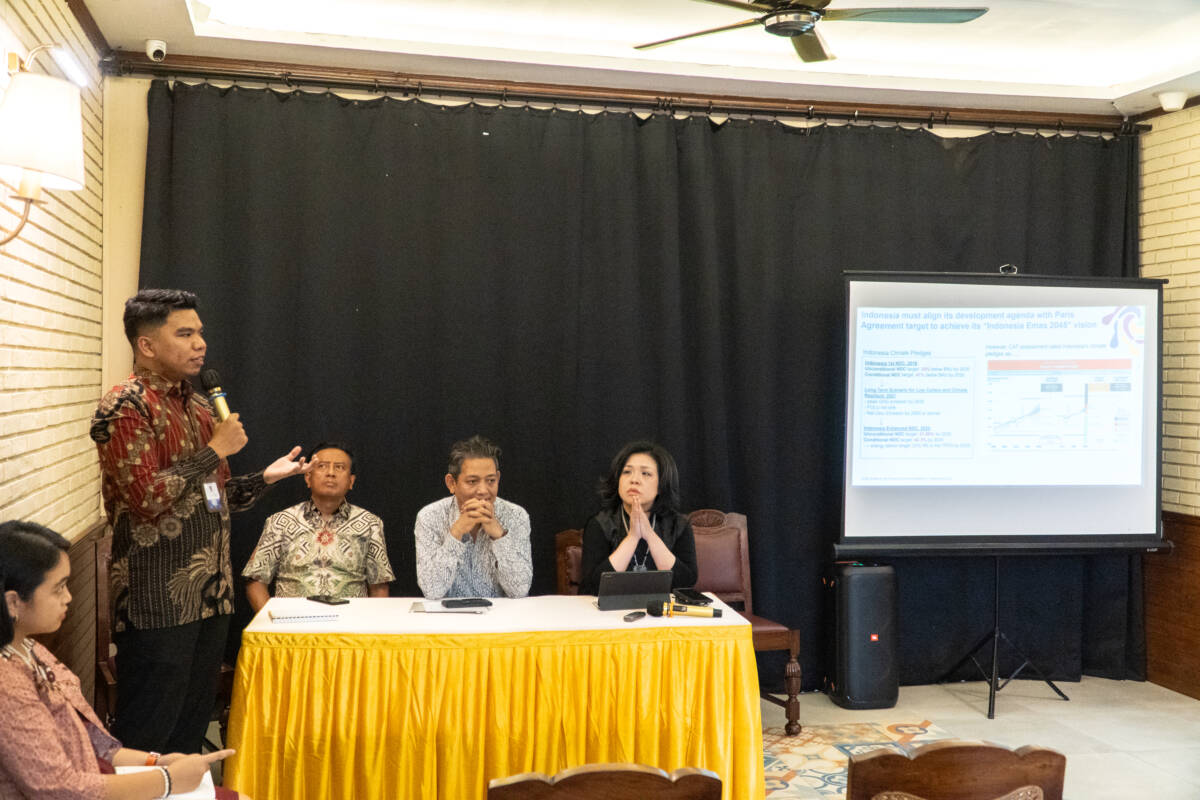
Deepening Indonesia-China Cooperation to Accelerate Energy Transition
Jakarta, September 24, 2024 – Addressing the climate crisis requires international partnerships to accelerate Indonesia’s energy transition to renew... Read more.
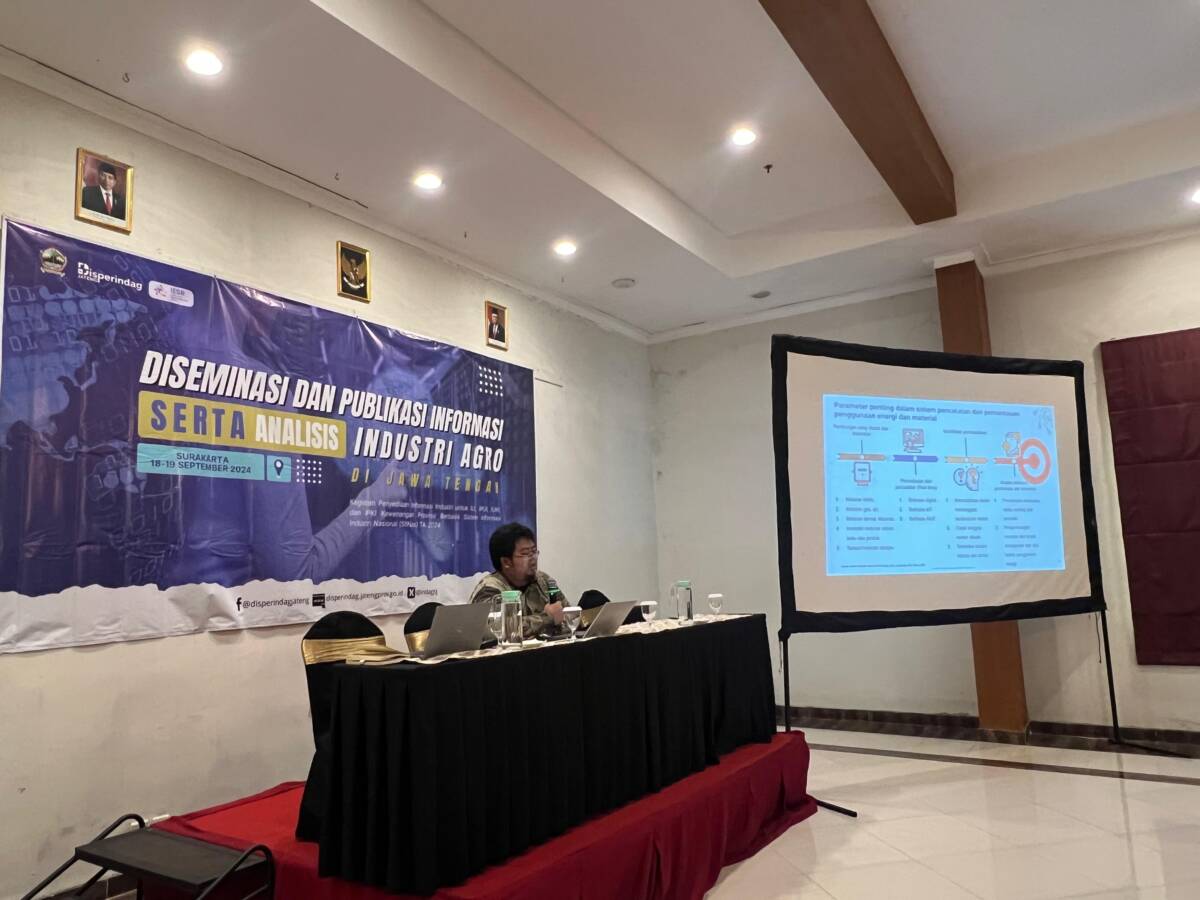
Encouraging Green Industry Development
Surakarta, September 19, 2024 – The industrial sector significantly contributes to the rise in global greenhouse gas (GHG) emissions. It is estimated that... Read more.
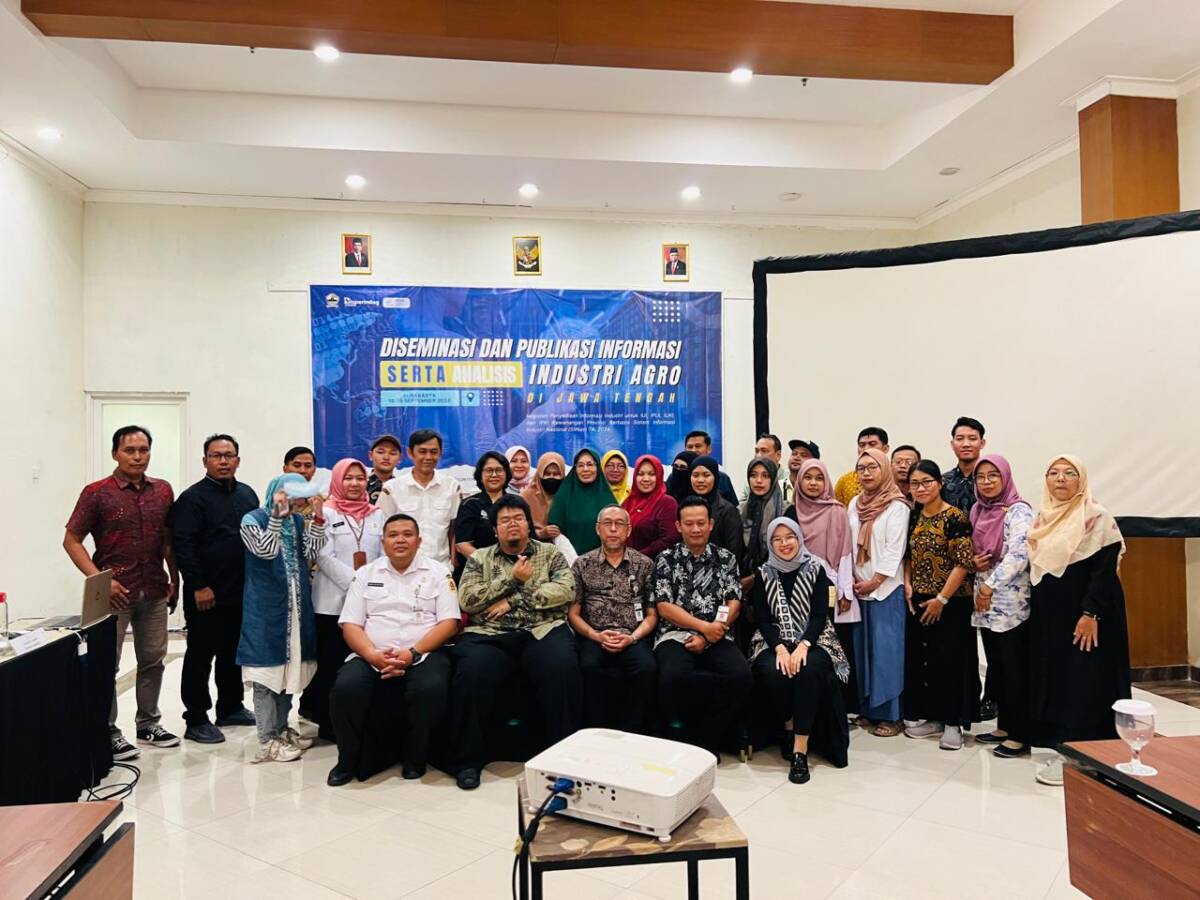
Energy Data Recording as a Key Catalyst to Achieve Industrial Decarbonization
Surakarta, September 18, 2024 – As the climate crisis becomes increasingly real, the transformation of Small and Medium Enterprises (SMEs) is essential as... Read more.
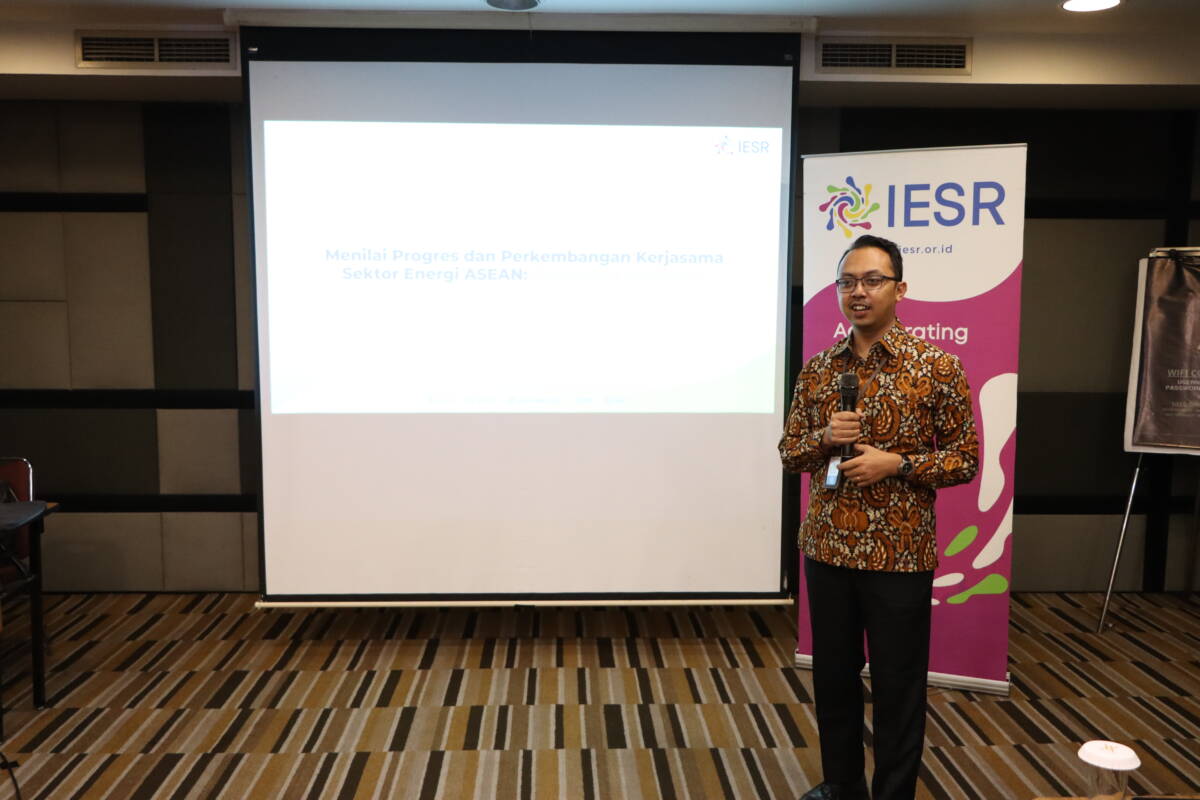
Southeast Asia’s Opportunity to Accelerate Energy Transition and Achieve NZE 2050
Jakarta, September 18, 2024—Southeast Asia is predicted to become the world’s fourth-largest economy by 2050. This projected increase in economic growth... Read more.
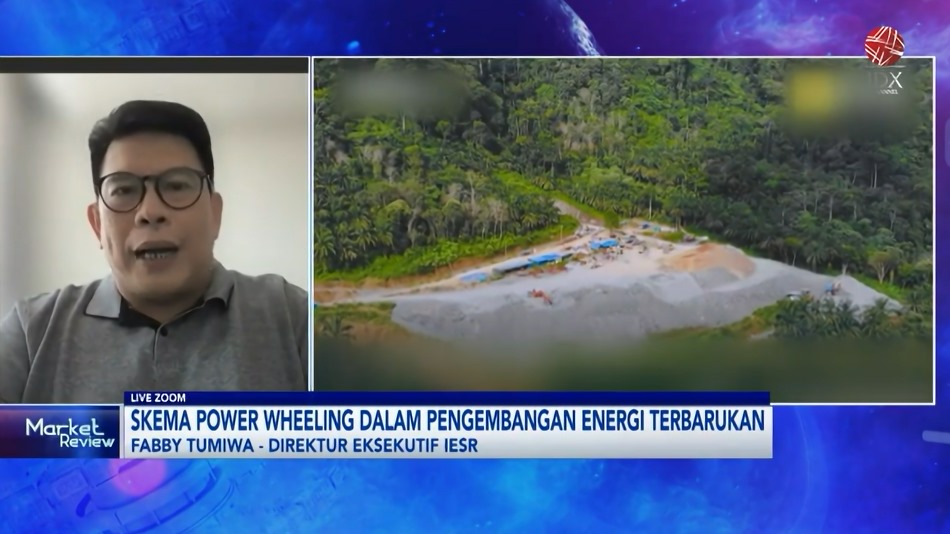
Power Wheeling in the EBET Bill: Renewable Energy Opportunity or Liberalization Threat?
Jakarta, 17 September 2024 – The scheme of utilizing a shared transmission network or power wheeling that is included in the discussion of the New and Ren... Read more.
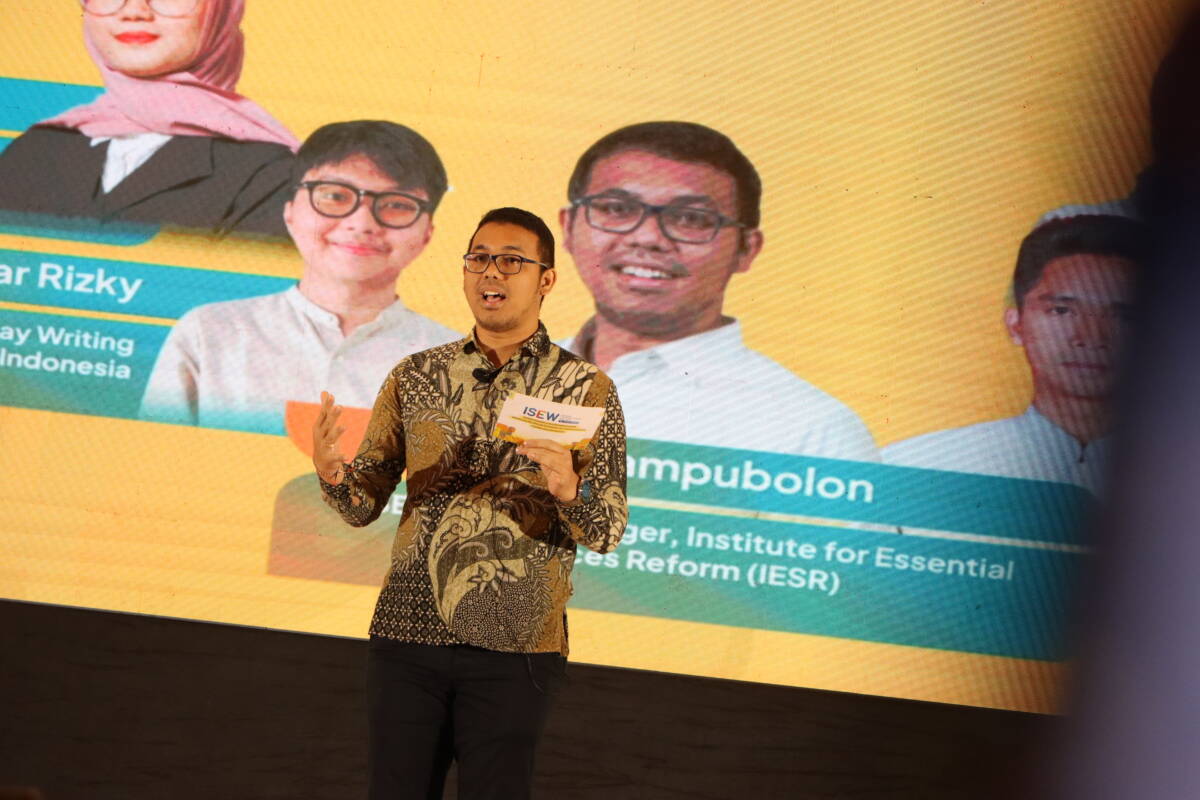
The Role of Individuals in Driving a Sustainable Energy Transition
Jakarta, September 17, 2024—The energy transition provides economic benefits and creates positive environmental and social impacts. The energy transition proc... Read more.

The Power of Meaningful Small Actions and Community Engagement in the Energy Transition
Jakarta, September 13, 2024 – Community involvement, including vulnerable groups, must be a significant aspect of implementing the just or equitable trans... Read more.
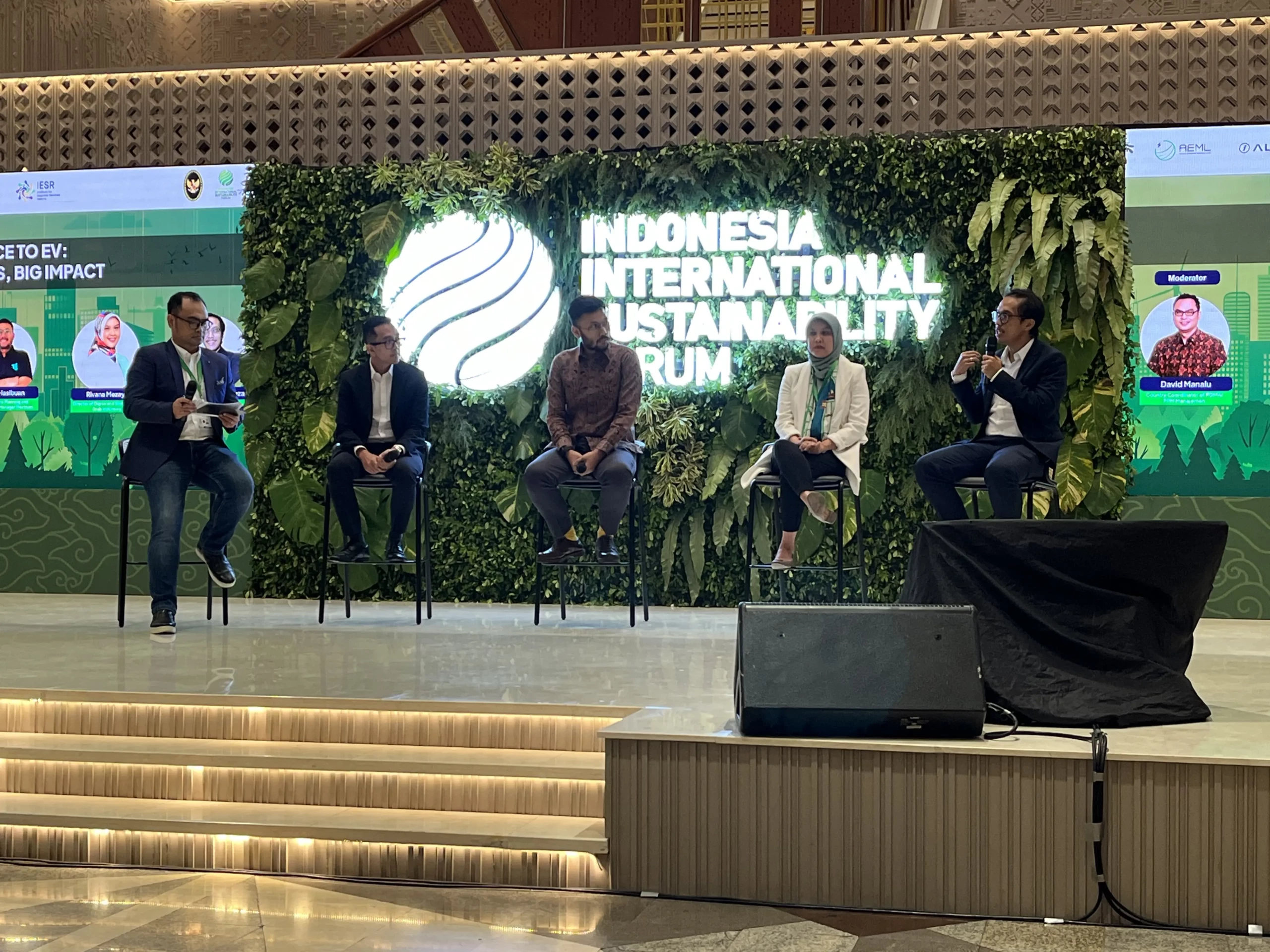
Switching to Electric Vehicles, a Solution to Reduce Emissions
Jakarta, September 6, 2024 – The transition from internal combustion engine (ICE) vehicles to electric vehicles (EVs) is an essential step in efforts to r... Read more.
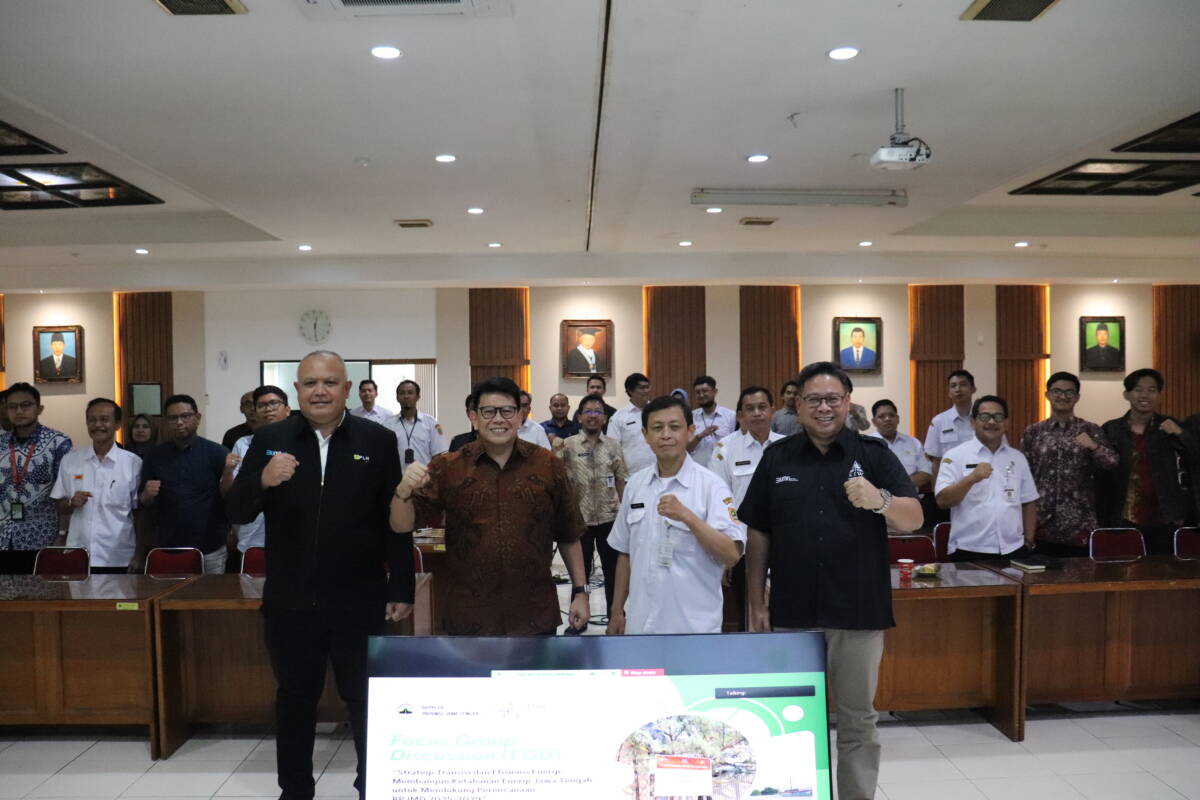
Promoting Sustainable Energy in Central Java
Central Java, September 11, 2024 – Central Java Province plays a crucial role in the efforts to achieve sustainable energy transition in Indonesia. With its a... Read more.
